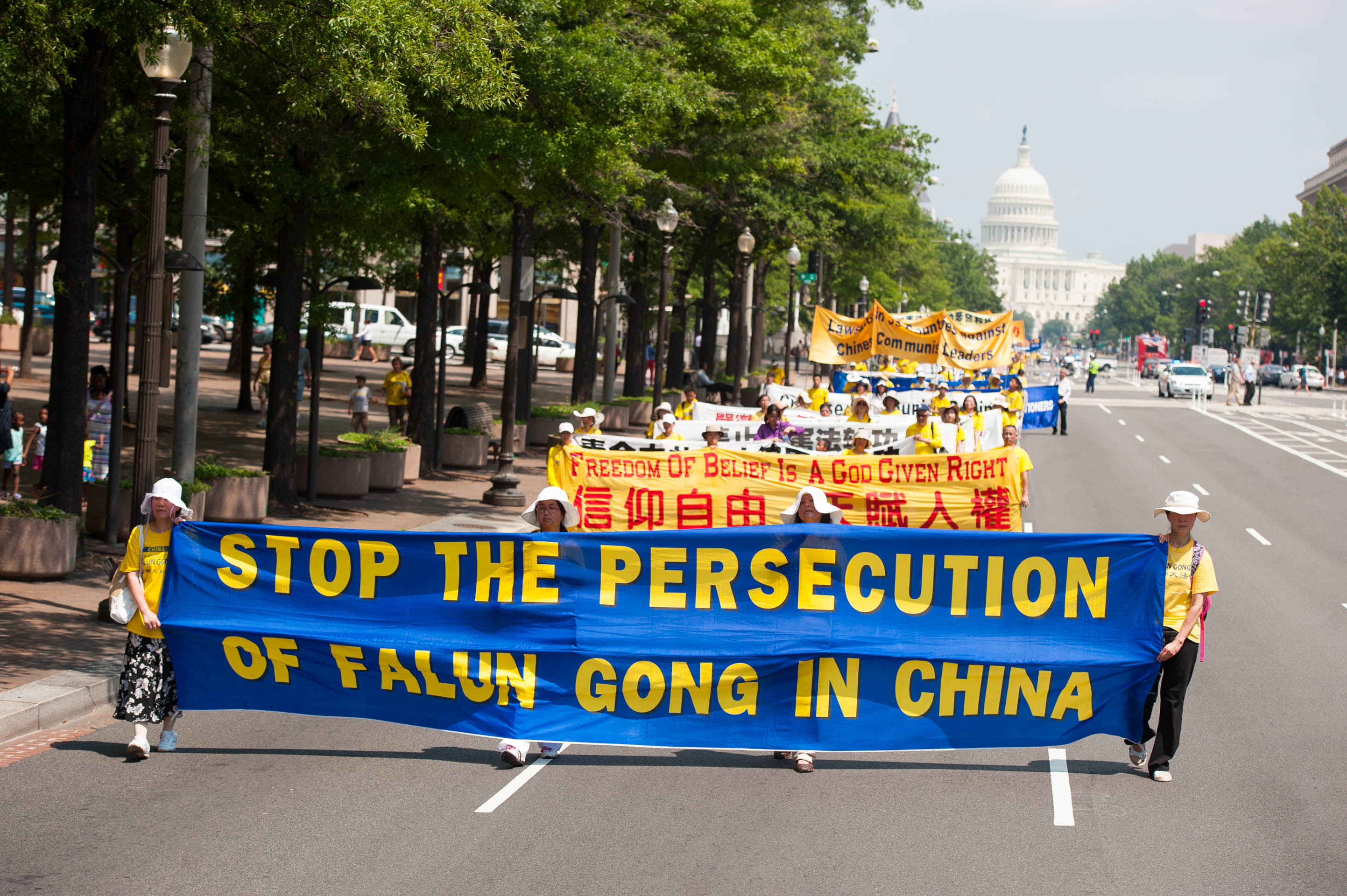China’s intranet fends off censored words through the Great Firewall
You know the internet as a seemingly infinite online environment ruled by openness and free expression. But in China, the internet is more like an intranet.
What is an intranet? An intranet is a private network accessible only to an organization’s members; all of its information and services are inaccessible to the public. As the Webopedia, an online tech dictionary, further explains “an intranet’s website and software applications look and act just like any others, but the firewall surrounding an intranet fends off unauthorized access and use.”
In China, the online access routes are owned by the government. So, the internet belongs to the government, and the government—the Chinese Communist Party—is the private owner of the network. It not only controls the internet gateways where traffic travels between China and the rest of the internet, but it also uses techniques to scan URLs and web page content to monitor how individuals are accessing the internet. Measures like these are part of the Chinese Communist Party’s sophisticated censorship mechanism, which is often called “The Great Firewall of China.”
This virtual firewall was established in November 2006, and has been successful in preventing information that the government deems as unsuitable from entering the country. As The New York Times reported late last year, “China’s censorship agencies exercise overlapping jurisdiction over the internet and often employ policies that create confusion. The result has been a layered system of control that begins with self-censorship by those who create online content, followed by policing by web platforms, which are often private enterprises, and finally, when necessary, intervention by government regulators or the police.”
So, what kind of information is unsuitable?
“Just those you know you shouldn’t mention,” a friend of mine said. That’s right. Among other things, words related to brutal events are banned. “Tiananmen protest,” “the tank man” and “Xinjiang riots” are on the blacklist for sure. Words relevant to religions and beliefs such as “Falun Gong” and “Dalai Lama” are censored so they cannot be discussed and spread. Words used in criticizing the Chinese Communist Party, which are defined as harmful to the government, are likely to be silenced as well. Of course, my friend and I, like many other Chinese, can create our own unsuitable information list based on intuition. But the lists are never stable and keeping expanding.
Covering up a scandal at a Beijing kindergarten
Last November, a high-end Beijing kindergarten was accused of child abuse after needle marks were found on kids, who were only 3 to 5 years old. One victim’s parents posted a heart-breaking video, in which their son admitted to being given white pills before he and his classmates took their noontime snooze.
The scandal erupted rapidly in China’s online network, particularly on Wechat (Chinese Twitter) and Weibo (Chinese micro-blog). Within a week, though, Chinese media were silenced and all relevant information and evidence vanished, especially on Wechat and Weibo. The kindergarten’s name is “Red Yellow Blue.” Astonishingly, even those three words were blocked on Weibo during that time. Since then, I have learned several new words related to the kindergarten scandal that should now be included on my list.
If the words on my old list were somehow related to politics, then I’d like to keep my mouth shut, because I barely understand politics. But I care about kids. The police in Beijing proved the needle marks were real, and a 22-year-old female teacher at the kindergarten whose last name was Liu was arrested. CNN also reported that police detained a woman for rumor-mongering and accused her of fabricating information online about the involvement of military personnel in the incident. After the investigation, more words were made taboo, and only questions and suspicions were left to be answered and explained.
“My dear firewall builder, are deleting posts and silencing online voices the best ways to protect our future generations?”
Forcing innocent little kids to take injections, to eat unidentified pills, and to sit inside a dark room as punishment crossed my line completely. But why can’t we discuss these horrifying issues online? And, of course, I don’t want to believe reports that the male military officer was actually naked while conducing body checks on children in the class. So, Beijing police and kindergarten staff, why don’t you provide sufficient evidence to prove the accusation was false and ridiculous? My dear firewall builder, are deleting posts and silencing online voices the best ways to protect our future generations?
George Washington gave the answer early: “If the freedom of speech is taken away, then dumb and silent we may be led, like sheep to the slaughter.”
A thank you to Google
Another reason that China’s network is described as an intranet is because its firewall has also blocked some high-profile international websites such as YouTube, Twitter, Facebook and Google. Facebook and Twitter were blocked in 2009 for carrying messages about the Xinjiang protests. In the same year, YouTube was also blocked, and it was speculated that the ban was caused by sharing videos of soldiers beating a monk and other Tibetans. In 2010, Google was inaccessible in mainland China, and then it moved its search engine to Hong Kong. At that time, I thought Google had made a mistake by forgoing the huge Chinese market, and it would regret its decision. But I didn’t know Google’s withdrawal was forced by censorship. In fact, the company upheld the freedom of speech that was being fought for by Chinese netizens.
GreatFire.org, an organization that monitors internet freedom in China, summarized Google’s tech battles with China’s Great Firewall. According to GreatFire’s listed timeline, in 2012, Google first introduced a new feature to inform Chinese users of the censored keywords, and at the same time posted a help article that explained how to use the feature. The Great Firewall team disabled this new feature within 24 hours. Two days later, Google changed the URL of a Javascript file that enabled the feature to function again. Unfortunately, within a few days the new URL was inaccessible again. Then Google fought back by embedding a new anti-censorship function on its front page, making it nearly-impossible to block. But since November, all content from Google.com and Google.com.hk was blocked in China. In December 2012, Google compromised by removing the anti-censorship feature along with the help article.
Although Google backed off, it had already offered a remarkable example of fighting against censorship. After reading those uncensored articles, I know I owe Google a thank-you. Google: thank you for reminding us of the intensity of internet censorship in China. Thank you for your efforts in maintaining our Chinese netizens’ freedom rights online. Thank you for inspiring us to use knowledge and wisdom to fight against censorship!
Hopefully, one day, we Chinese will be able to move beyond the closed environment of our intranet and join the rest of the world on the wide-open internet.
- China’s intranet fends off censored words through the Great Firewall - March 30, 2018





